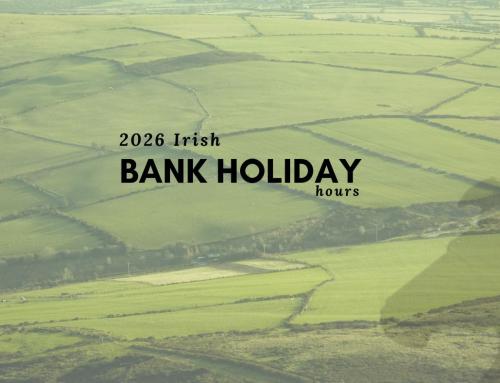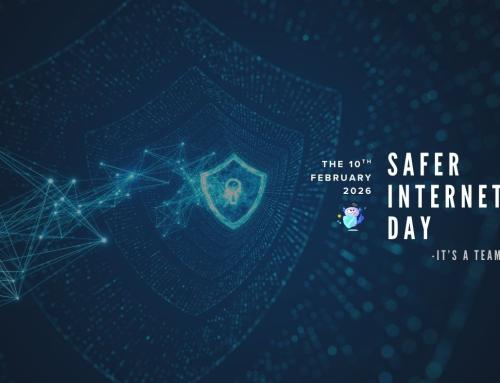Blacknight is a member of the Global Encryption Coalition, an advocacy group for the safety and security provided by encryption. Governments around the world hate encryption because they don’t have access to our private information, but it’s important to the smooth running of the internet. That’s why we’ve signed this open letter with dozens of other global companies, urging the United Kingdom’s Parliament to reconsider its draft Online Safety Bill which will require platforms to create backdoors that will essentially make encryption useless. It will break the internet.
End-to-end encryption means that our family photographs, messages to friends and family, financial information, and the commercially sensitive data of businesses can all be kept safe from harm’s way. But the UK Government has continued in its quest to undermine encryption, most recently with the Online Safety Bill. In its draft legislation, the UK Government would introduce rules forcing companies that offer private messaging services to weaken strong encryption in order to monitor user content. But there is simply no way to provide content monitoring and filtering without undermining strong encryption for every user, including children.
Encryption backdoors are just an invitation for criminals, foreign adversaries, and other dangerous actors to steal, manipulate and use data to attack the safety of UK citizens. Predators can make use of exposed geolocation information, photos, and other personal and private details to stalk, bully, threaten, and abuse. For some, like our children, religious minorities, and members of the LGBTQ+ community, these risks to privacy and safety are particularly dire.
As an Irish internet company part of the global internet community, we would be directly affected by any changes that the UK government makes to its laws on encryption. Any attempt to weaken encryption in one country will lead to it weakened everywhere. Allowing backdoors that weaken end-to-end encryption is a regulation too far.
The digital economy’s growth can only be sustainable if consumers can trust that the companies they entrust their data to are secure. Forcing a company, any company, to break encryption undermines that trust and trust is a key currency for any company operating on the internet. This Online Safety Bill proves that governments around the world still don’t understand the internet and how it works. If passed, this will fundamentally break the trust between consumers and internet companies.
Here is the letter in full, which has been published in The House, a publication that focuses solely on the Houses of Parliament.
68 million of your constituents are at risk of losing the most important tool to keep them safe and protected from cyber-criminals and hostile governments.
End-to-end encryption means that your constituents’ family photographs, messages to friends and family, financial information, and the commercially sensitive data of businesses up and down the country, can all be kept safe from harm’s way. It also keeps us safer in a world where connected devices have physical effect: end-to-end encryption secures connected homes, cars and children’s toys. The government should not be making those more vulnerable to attack. The draft Online Safety Bill contains clauses that could undermine and in some situations even prohibit the use of end-to-end encryption, meaning UK citizens will be less secure online than citizens of other democracies. British businesses operating online will have less protection for their data flows in London than in the United States or the European Union. Banning end-to-end encryption, or introducing requirements for companies to scan the content of our messages, will remove protections for private citizens and companies’ data. We all need that protection, but children and members of at-risk communities need it most of all.
Don’t leave them exposed.
With more people than ever before falling prey to criminals online, now is not the time for the UK to undertake a reckless policy experiment that puts its own citizens at greater risk. We, the undersigned, are calling on the Home Office to explain how it plans to protect the British public from criminals online when it is taking away the very tools that keep the public safe.
If the draft Online Safety Bill aims to make us safer, end-to-end encryption should not be threatened or undermined by this legislation.
Sincerely,
ARTICLE 19*
Association for Proper Internet Governance
Big Brother Watch*
Bikal
Blacknight*
CCAOI*
Centre for Democracy and Technology*
Coalition for a Digital Economy (COADEC)
Defenddigitalme
Derechos Digitales*
Digital Rights Watch*
eco – Association of the Internet Industry*
English PEN
Global Partners Digital*
Internet Governance Project, Georgia Institute of Technology*
Internet Society*
Internet Society Ghana Chapter*
Internet Society Hyderabad Chapter*
Internet Society UK England Chapter*
Mega Limited*
New America’s Open Technology Institute*
Open Rights Group*
Paradigm Initiative (PIN)*
Praxonomy*
Privacy International*
Prostasia Foundation*
Riana Pfefferkorn, Research Scholar, Stanford Internet Observatory
Simply Secure*
Statewatch
techUK
The Tor Project*
Tresorit*
Tutao GmbH – Tutanota*
*Members of the Global Encryption Coalition
What can you do? If you’re in the UK, please contact your local MP and let them know how you feel about this issue.
Be sure to tell them:
- Ensure that end-to-end encryption not be threatened or undermined by the Online Safety Bill, and that services utilising strong encryption are left out of the Bill’s content monitoring and filtering requirements.
- Call on the UK Home Office to explain how it plans to protect the British public from criminals online when it is taking away the very tools that keep the public safe.
Learn more about the Global Encryption Coalition and the good work they do to keep the internet safe here.






